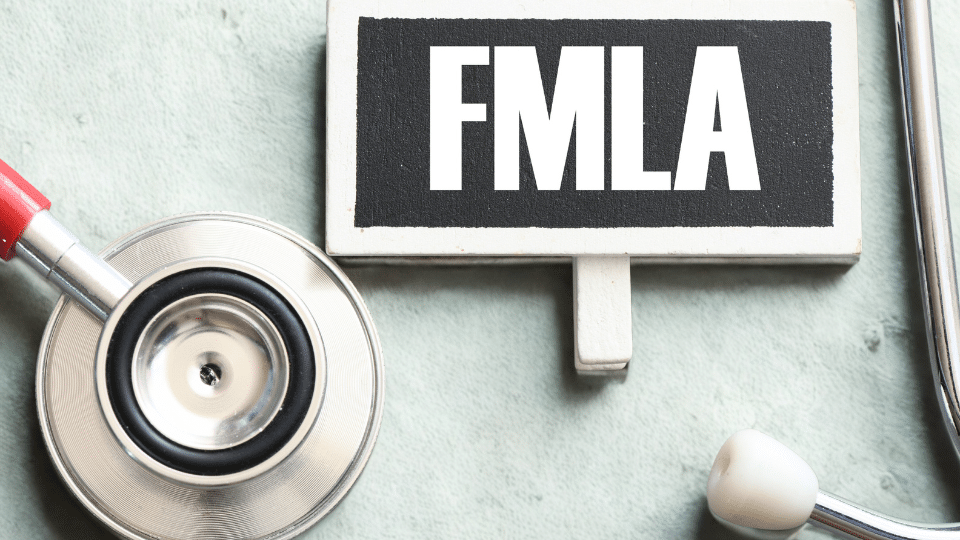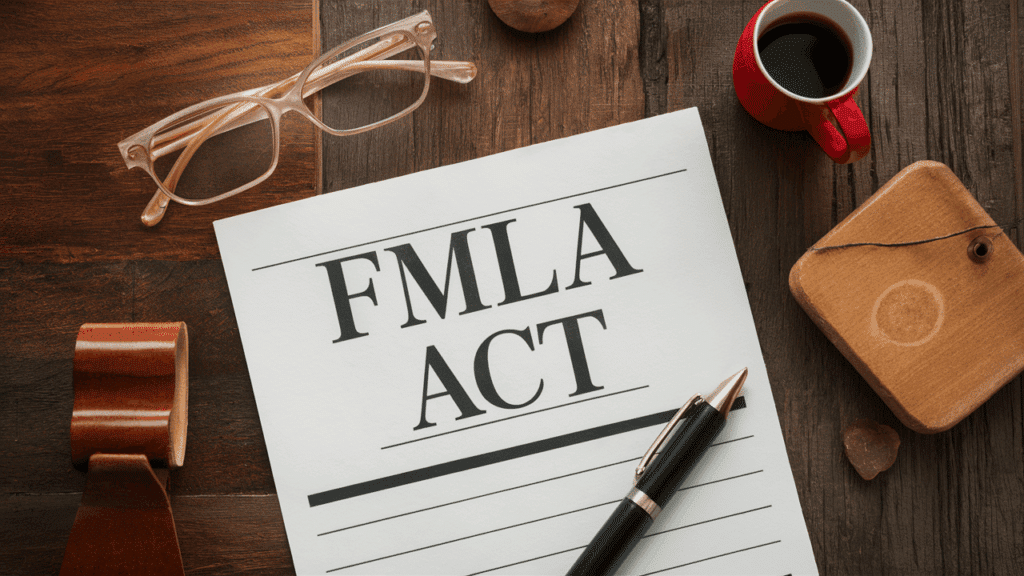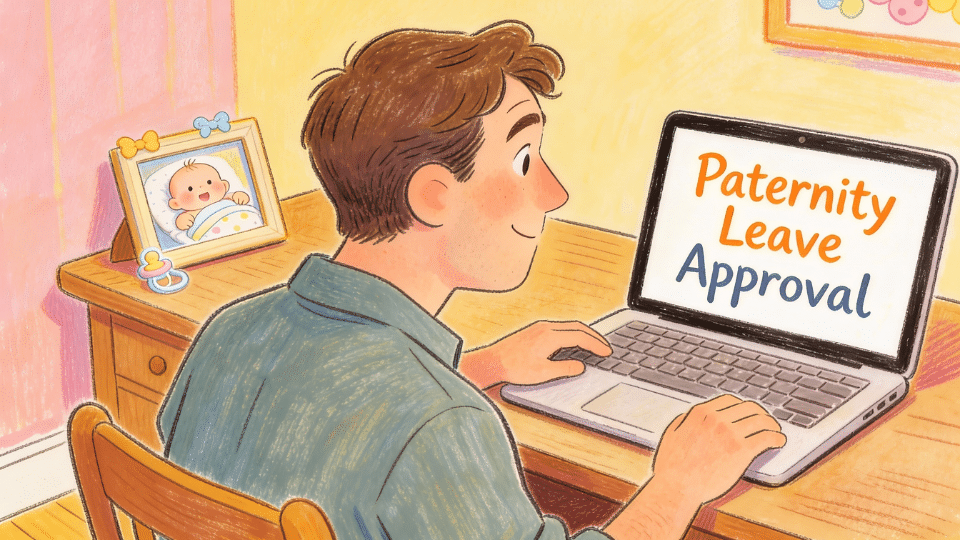Facing a serious health condition can be overwhelming, especially when the standard 12 weeks of Family and Medical Leave Act (FMLA) coverage doesn’t feel like enough.
While FMLA ensures job protection and unpaid leave for up to 12 weeks, many employees find themselves needing additional time to recover or care for loved ones.
The question is, can FMLA be extended beyond 12 weeks?
This post breaks down when extensions may be possible, and how federal and state laws like the Americans with Disabilities Act (ADA) can provide added protection.
Practical ways to request more time off without risking your job security.
Understanding FMLA and Its Provisions
Under federal law, the FMLA guarantees the following benefits for eligible employees:
- Continued health insurance during leave
- Job protection, with reinstatement to the same or equivalent role
- Protection from retaliation related to leave
FMLA applies to employers with 50+ employees and covers workers who:
- Have been employed for at least 12 months
- Worked at least 1,250 hours in the past year
When Can FMLA Be Extended Beyond 12 Weeks?

FMLA extensions are most commonly granted for serious health conditions or long-term responsibilities, and some state laws may permit additional leave beyond the federal limit.
1. Serious Medical Conditions
Employees may need Extra weeks of job-protected leave to recover from:
- Major surgeries
- Cancer treatments
- Severe injuries requiring therapy
- Chronic conditions with recurring episodes
With proper medical documentation, extensions under the ADA or employer policies may apply.
2. Military Family Leave
Under the FMLA, Military Caregiver leave allows employees to qualify for up to 26 weeks of leave in a 12 month period to care for covered service members.
This is the clearest example where the law itself allows the FMLA to be extended beyond the standard leave weeks.
Legal Ways to Extend FMLA Leave
While the FMLA limits leave to weeks, other laws, policies, and regulations may allow for extended time off, providing additional protection for employees in need of longer leave
1. Americans with Disabilities Act (ADA)
The ADA may allow additional unpaid leave as a reasonable accommodation.
Requirements include:
- A qualifying disability under ADA standards
- Medical likelihood of returning to work
- No undue hardship on the employer
2. State Family Leave Laws
Some states go beyond federal FMLA protections, offering longer leave or broader eligibility. Examples:
- California: State family rights law offers additional protections
- New Jersey: Extended family leave insurance benefits
- Washington: Paid family and medical leave (with possible extensions)
- New York: Paid Family Leave with job security
3. Employer Policies Extending Beyond FMLA
Some employers voluntarily extend leave benefits by offering:
- Additional unpaid leave
- Extended health coverage
- Flexible or phased return-to-work programs
How to Request an Extension Beyond 12 Weeks?
Securing additional leave requires careful steps to avoid misunderstandings with your employer:
1. Gather Medical Documentation
Provide comprehensive documentation from your healthcare provider explaining why additional recovery time is necessary and an expected timeline for your return.
2. Submit a Formal Written Request
Before your week’s extension, send a formal request that includes medical evidence and suggests a realistic return-to-work date.
3. Communicate Clearly
Stay in regular contact with HR or your manager to provide updates, prevent misunderstandings, and reduce leave disputes
Can My Employer Fire Me at the End of My FMLA Leave?
In most cases, your employer cannot fire you simply because you used FMLA leave.
The law protects your job and ensures you return to the same or an equivalent position.
But, termination may occur if your role would have been eliminated regardless of your leave, for example, during company layoffs or performance-based dismissals.
If you believe your termination was linked to taking leave, it could be an FMLA violation, and consulting an employment attorney is recommended.
Additional Rights and Considerations

Employees may have access to protections beyond the standard weeks of FMLA.
They also have the right to deny FMLA extensions in certain situations.
Knowing both sides is crucial to avoid violations by employers while understanding workplace limitations.
Protections for Employees
- Workers Compensation: Extends leave and provides partial wage replacement
- Disability Insurance: Replaces income during medical leave; the ADA allows recovery time.
- State Paid Leave Programs: Some states offer longer paid leave with job protection.
Employer Limitations on Extended Leave
- Undue Hardship: Leave can be denied if it causes major financial or operational strain.
- Essential Job Functions: Employers may require employees to perform specific duties or adjust their roles.
What to Do if Your Rights Are Violated?
If you believe your FMLA rights have been ignored or violated, acting quickly can help safeguard your job and legal protections.
-
Keep detailed records: Save copies of emails, written notices, and notes from any conversations related to your leave.
-
Review your company’s leave policy: Revisit your employee handbook or HR documents to confirm your rights and the correct procedures.
-
Speak with HR: Bring up your concerns directly with human resources to clarify misunderstandings or resolve issues internally.
-
File a formal complaint: If the problem continues, submit a claim with the U.S. Department of Labor’s Wage and Hour Division.
-
Consult an employment attorney: Get professional guidance to understand your legal options and protect your rights effectively.
Conclusion
FMLA sets clear limits, but it doesn’t always mark the end of your options.
Depending on your situation, additional time off may be possible through ADA accommodations, state leave laws, or employer-specific policies.
If your request for extended leave is denied or you experience retaliation, it could indicate an FMLA or ADA violation.
Consulting an employment attorney can help clarify your rights and the next steps to take.
Remember, clear communication and documentation play a key role in protecting your job and well-being during medical leave.
If you’ve found an FMLA extension or faced difficulties at work because of medical leave.
Share your story or questions in the comments; your insights could help others in similar situations.
Frequently Asked Questions
Do I Get Paid During Extended FMLA Leave?
Standard FMLA extensions remain unpaid, but state disability programs, workers’ compensation, or employer benefits may provide wage replacement during extended periods.










